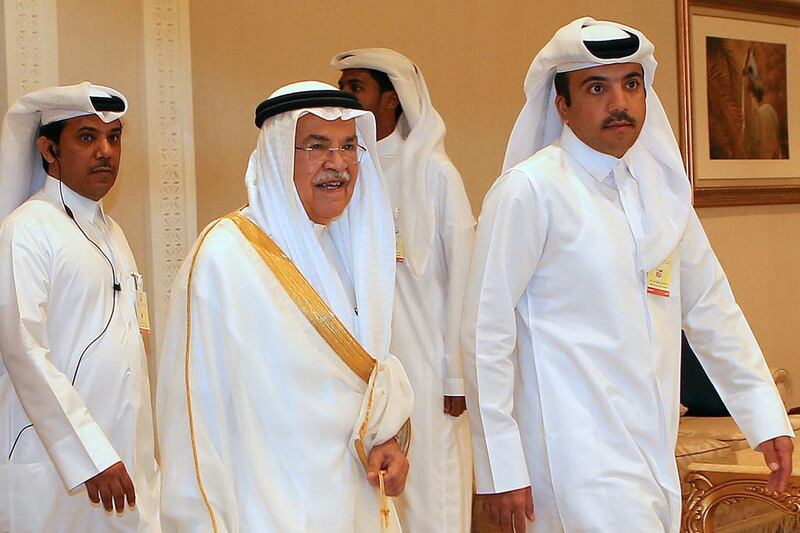Talks in Doha between some of the world’s biggest oil producers on freezing production dragged on into the evening amid disagreements on the wording of the agreement, in part to address Saudi Arabia’s stance on Iran.
Discussions continue on a rewritten draft accord to freeze output at “an agreeable level” as long as all Opec countries and other major producers join, said three people with knowledge of the matter, who asked not to be identified because the talks were private.
Some 18 countries, including Russia, had been due to meet on Sunday morning to rubber-stamp a deal – in the making since February – to freeze output at January levels until October 2016.
But the meeting was postponed after Opec’s de facto leader Saudi Arabia told participants it wanted all Opec members to take part in the freeze.
As a result, a reworked draft communique seen by Reuters contained none of the binding points of the previous outline.
On April 14, Saudi Arabia’s deputy crown prince said the kingdom wouldn’t agree to restrain its production unless other producers, including Iran, agree to freeze. Iran, which isn’t attending the meeting, has ruled out joining the accord for now.
“Discussions are at a very high level between the Saudis, Russians and Gulf countries,” over Iran’s output, Wilson Pastor, Ecuador’s governor to Opec, said in a Bloomberg Television interview in Doha before the start of formal talks. “The general agreement is in place,” but there were some disagreements on the wording, including details yet to be finalised on monitoring the accord and a follow-up meeting, he said.
Crude oil has rallied since the freeze was first proposed in February. Failure to reach an agreement would lead to a “severe” drop in prices, Citigroup predicted before the meeting. Brent crude settled at US$43.10 a barrel Friday in London, having risen by more than 50 per cent from a 12-year low in January.
business@thenational.ae
Follow The National's Business section on Twitter





